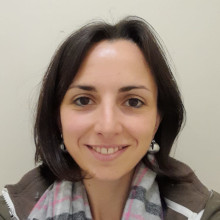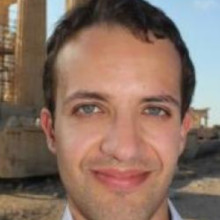Team
Olga Tribulato
Principal Investigator
Short bio
Olga Tribulato is a Greek philologist who specialises in the linguistic history of Ancient Greek. Trained at the universities of Rome (Sapienza), Cambridge, Cologne and Oxford, she focuses on the Greek dialects and literary languages, epigraphy, ancient languages in contact, Atticist lexicography and Greek theories of language correctness. She is the author of Ancient Greek Verb-Initial Compounds: Their Diachronic Development within the Greek Compound System (De Gruyter 2015) and, among other volumes, she has edited Language and Linguistic Contact in Ancient Sicily (CUP 2012). In the PURA project she primarily works on the linguistic analysis of lemmas from the Antiatticist lexicon, and on the interpretation of Atticism in the light of the socio-linguistic category of purism.
Roberto Batisti
Senior post-doc in Greek linguistics
Short bio
Roberto Batisti is PURA's senior post-doc in Greek linguistics and philology. He gained his PhD at the University of Bologna in 2014 with a dissertation on compensatory lengthening in the ancient Greek dialects. Before joining Ca’ Foscari, he was a postdoctoral researcher at the Department of Classical Philology and Italian Studies of the University of Bologna. He specializes in the linguistic history of Ancient Greek and has published several articles and book chapters on topics in Classical linguistics and philology. Within PURA, he mainly works on the linguistic theories of Atticism regarding the evolution of Greek from the Classical to the Imperial age, and on the lexicon of Philemon.
Federica Benuzzi
Post-doc in Ancient Greek
Short bio
Federica Benuzzi is an early-career researcher in Greek philology. Her primary area of interest is Hellenistic scholarship on comedy. She studied Classics in Bologna and and did her PhD at the Università Cà Foscari. Her doctoral dissertation on the grammarian Didymus in the scholia to Aristophanes will be part of the the series Supplementum Grammaticum Graecum (Brill). She wrote a chapter dedicated to Didymus and comedy within the volume Didymus and Greco-Roman Learning and published a number of articles and contributions, three of which drawn from her MA thesis and concerning Eratosthenes’ work On ancient comedy. Within PURA, Federica is studying the relationship between Hellenistic philology (especially on comedy) and the origin of Atticism.
Jacopo Cavarzeran
Post-doc in Greek philology and palaeography
Short bio
Jacopo Cavarzeran is a post-doc in Greek philology and palaeography. He graduated at Ca' Foscari University of Venice and gained his PhD at the University of Padua in 2015. He edited the ancient and Byzantine scholia to Euripides' Hippolytus (De Gruyter 2016) and Andromache (De Gruyter forthcoming), and is now focusing on the scholia to Alcestis and Hecuba. His expertise is in the textual tradition of Greek scholarly works and the reception of Classics in Italian Humanism. Within PURA he works on the manuscript transmission, circulation and printing of the Atticist lexica between Byzantium and the early modern age.
Giulia Gerbi
Post-doc in Byzantine studies
Short bio
Giulia Gerbi is an early-career researcher in Greek and Byzantine philology. She studied Classics in Turin and then obtained a double PhD degree at Ca’ Foscari University and Sorbonne Université. Her experience in research ranges from ancient Greek literature (with a BA dissertation concerning Corinna) and Latin palaeography (within a traineeship at the IRHT in Paris) to Byzantine philology and literature. Her PhD thesis (soon to be published) consists in a new critical edition with Italian translation and commentary of Nikephoros Basilakes’ Progymnasmata. Besides Basilakes, her research in Byzantine literature has also encompassed works of John Tzetzes and Nicholas Kallikles. In the PURA project she studies the impact of Atticism on Byzantine literature through the analysis of the reception of Atticist materials in Byzantine lexica.
Federico Favi
Associated member
Short bio
Federico Favi was a member of the PURA team between January 2021 and March 2022. He is now a Researcher in Greek language and literature at Università del Piemonte Orientale. He continues to collaborate with PURA as an associated member. Federico received his BA and MA from the University of Rome ‘Sapienza’ and his PhD from the Scuola Normale Superiore, Pisa. Before joining Ca’ Foscari, he was a British Academy Postdoctoral fellow in the Faculty of Classics at the University of Oxford. He is interested in the study of Greek comedy and of the history of the Greek language and its dialects. He is the author of two books, one on phlyax plays and one on Epicharmus, and of several articles in the field of Greek philology. In the PURA project Federico has been primarily working on Phrynichus’ lexica and on the language of Greek comedy.
Short bio
Elisa Nuria Merisio is a post-doc in Ancient Greek Language and Literature. She studied Classics in Siena and gained her PhD at Sapienza University of Rome. Her doctoral dissertation on Greek metrical inscriptions from Eastern Phrygia is forthcoming in the series "Texte und Kommentare" (De Gruyter). After the PhD she earned a Professional Master in “Text Technology – Digital Edition” at University of Siena. Before joining Ca’ Foscari, she was a postdoctoral researcher at the University of Florence. Her main research interests focus on epigraphic poetry, post-classical Greek and Digital Humanities. She joins the PURA Project thanks to a FARE grant from the Italian Ministry of University: she will work on the implementation of the digital resource DEA and on the linguistic analysis of lemmas from Phrynicus’ "Eclogue".
Andrea Pellettieri
Post-doc in Greek philology
Short bio
Andrea Pellettieri is a post-doc in Greek philology. He graduated at Università di Roma Tor Vergata and did his PhD at Sapienza Università di Roma. His research interests include Attic theatre and Hellenistic literature and scholarship. He published the volume I composti nell’Alessandra di Licofrone in 2021 (De Gruyter) and edited the fragments of Lycophron’s work On Comedy for the series Supplementum Grammaticum Graecum (Brill 2020). He is now working on Pherecrates frr. 43-84 K.-A. for the series Fragmenta Comica. In the PURA project he primarily works on the linguistic analysis of lemmas from Moeris’ lexicon.
Elena Scanu
Project Manager
Short bio
Elena Scanu is a project manager specialized in EU funds. She has a master degree in foreign languages and almost twenty-year-experience working in the private sector as account coordinator. After a specialization in project management, since 2020 she has been working as project coordinator in the public sector, dealing with European, national and regional projects, in the area of financial monitoring and reporting as well as in the communication activities. Within PURA she is the project manager with regard to its administrative part.
Short bio
Giorgia Scomparin studied Classics at Ca' Foscari University of Venice, where she received both her BA and MA. She is currently doing a PhD in Greek philology at the University of Messina. Giorgia is interested in the history of the Greek, ranging from Greek dialects and literary languages (with a BA dissertation on the language of Sapph. fr. 44 V) to Greek morphology and Atticist lexicography (with a MA dissertation on compounds in Phrynichus' Eclogue). Her PhD project concerns the language of Favorinus of Arelate in relation to Atticism and the linguistic usage of the authors of the Second Sophistic.
In the PURA project Giorgia is working as editorial assistant for the Digital Encyclopedia of Atticism.
Visiting researchers
Ioanna Manolessou [GRE]
Senior Researcher, Academy of Athens
Short bio
Ioanna Manolessou is the Director of the the Modern Greek Historical Dictionary (ILNE). She is an expert in Greek diachronic linguistics and historical lexicography, and one of the authors of the Cambridge Grammar of Medieval Greek. As a Ca' Foscari Visiting Professor in March–May 2023, she will be delivering the MA lecture course "Language and society in the Greek world", focusing on the transition from the koine to Modern Greek. As an advisor, she will participate in PURA's project meetings.
Chiara Monaco
Post-doctoral fellow, Universiteit Gent
Short bio
Chiara Monaco is a postdoctoral fellow of the Research Foundation Flanders (FWO)(Ghent 2021-2024), where she works on standardisation, Atticism, prescriptivism and the so-called 'Aeolodoric theory' of Modern Greek linguistics, with the aim of evaluating the impact of ancient ideas of language on the transmission of Greek. During her stay at Ca' Foscari as a PURA visiting scholar in March–May 2023, Chiara will be working on a paper on comic compounds and hapax legomena in Phrynichus' Praeparatio sophistica.
Alessandro Vatri
Departmental Lecturer in Classical and Comparative Philology, University of Oxford
Short bio
Alessandro Vatri is an expert of Greek rhetorical theory and oratorical performance, as well as of computational approaches applied to Ancient Greek. He is visiting Ca' Foscari Department of Humanities and PURA between April and June 2022.
Collaborations and scientific advisors
PURA collaborates with researchers in Greek, philology, digital humanities and linguistics based at Ca’ Foscari Department of Humanities, the Venice Center in Digital and Public Humanities, and the Marciana Library. The following external scholars advise the project and peer-review our output:
- Prof. Albio Cesare Cassio (History of the Greek language, Emeritus, University of Rome ‘La Sapienza’)
- Prof. Andrea Massimo Cuomo (Byzantine linguistics, Ghent University)
- Prof. Emanuele Dettori (Ancient Greek linguistics and lexicography, University of Rome ‘Tor Vergata’)
- Prof. Eleanor Dickey (Ancient Greek and Latin linguistics, University of Reading)
- Dr. Ioanna Manolessou (Modern Greek historical lexicography, Academy of Athens)
- Prof. Stephanos Matthaios (Greek philology and lexicography, University of Athens)
- Prof. Lara Pagani (Greek philology, University of Genoa)
- Prof. Lucia Prauscello (Greek literature, Oxford University)
- Prof. Philomen Probert (Ancient Greek linguistics and comparative philology, University of Oxford)
- Prof. Antonio Rollo (Byzantine philology, Istituto Orientale, Naples)
- Prof. Paolo Scattolin (Greek philology, University of Verona)
- Prof. Giuseppe Ucciardello (Greek lexicography, University of Messina)

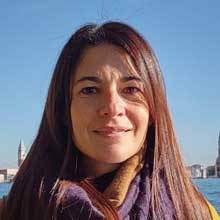

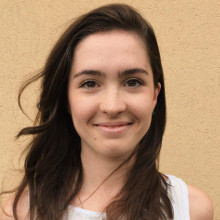
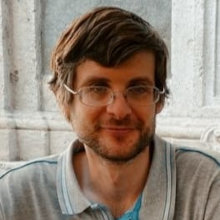
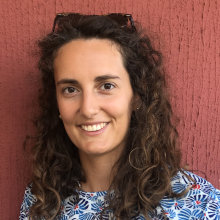
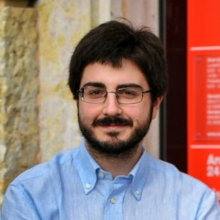
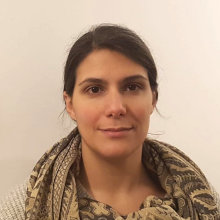
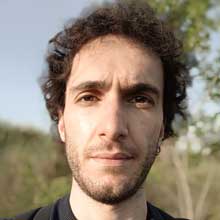
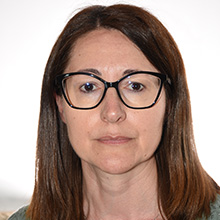
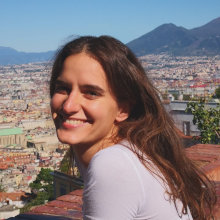
![Ioanna Manolessou [GRE] Ioanna Manolessou [GRE]](/fileadmin/user_upload/PURA/img/26957426.jpg)
